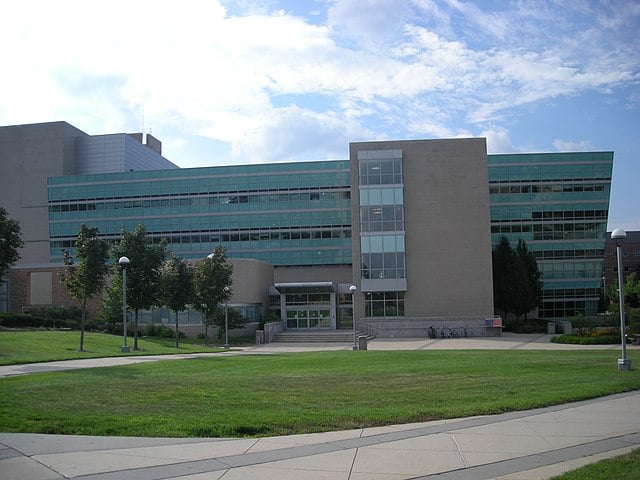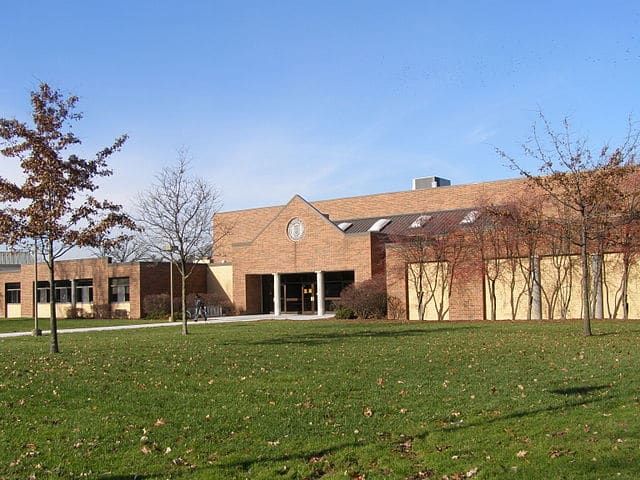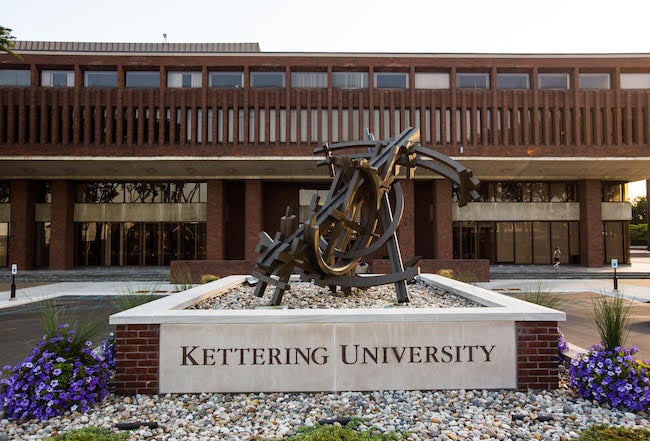For students who enjoy hands-on work and have dreamed of working at companies like Ford, General Motors, or Harley Davidson, automotive engineering is an excellent choice. These workers are responsible for the design and development of new vehicles. Automotive engineers apply their engineering knowledge to innovate new cars, trucks, buses, or motorcycles.
As part of a challenging and rewarding field, automotive engineers can work with exciting new technologies instead of sitting in an office all day. Along with manufacturing, they can also research new breakthroughs in fuel efficiency, safety, and design.
Automotive engineering is a specialty of mechanical engineering, with some universities offering automotive-specific degrees. Like most engineers, students need a strong background in calculus, physics, and chemistry to succeed. As today’s vehicles grow more and more technically advanced, a thorough understanding of computer science is also essential. Schools with Automotive Engineering Technology degrees or concentrations will also have technical courses in engine theory, automotive electronics, power systems, and many more.
Automotive engineers must have strong analytical abilities and be able to solve problems as part of a team. These skills are developed through hands-on opportunities inside and out of the classroom. Organizations and competitions dedicated to automotive design help students build a network and apply the knowledge learned in the classroom. Similarly, many top universities will have internship or research positions for students to gain firsthand experience in real-world situations.
Engineers graduate in high demand by automotive manufacturers and suppliers. Electric cars and new vehicle systems continue to be improved in an ever-changing automotive world. Due to a need for the next generation of vehicles, this profession will remain necessary and have openings for new graduates. Automotive engineers earn an average annual salary of $79,000.
Here are 10 of the best automotive engineering schools in the US.
Brigham Young University, Idaho (Rexburg, ID)

BYUI’s degree in Automotive Engineering Technology includes hands-on, practical experiences in every class. The coursework focuses on taking vehicles from the design to manufacturing stage, with a host of automobiles for students to diagnose and repair. By working in a group, undergraduates develop problem-solving and teamwork skills necessary for their future careers.
Through the rigorous curriculum and highly qualified instructors, BYUI graduates are prepared to go on to work in a variety of fields. Automotive Engineering Technology alumni work as service engineers, test engineers, engineering technicians, and product engineers.
Undergraduates gain hands-on experience through internships and extracurricular activities. BYUI engineers consistently rank among the top in the nation in various skills competitions. The BYU-Idaho Supermileage team had the first successful run of the competition and ranked #2 out of 33 global teams for the reliability and endurance of their vehicle.
University of Tennessee, Chattanooga (Chattanooga, TN)

Students can deepen their knowledge in automotive engineering through UTC’s Engineering Automotive Systems concentration. Chattanooga is recognized for the role the community plays in the national automotive industry. The surrounding area houses over 900 manufacturers and suppliers, with university endeavors leading to thousands of jobs and billions of dollars in capital investments. Automotive engineering students can take advantage of the environment through research and internships.
The degree at UTC is developed alongside automotive partners to meet the demands of the automotive industry. Through classes like engineering analysis, mechatronics, applied mechanics, advanced simulation, and modelling, students have a strong foundational base. Each student’s program is developed individually to meet their needs and interests. With industry needs in mind, the Automotive Systems concentration emphasizes advanced manufacturing, systems approach to design, simulation, and project management.
Indiana State University (Terre Haute, IN)

Indiana State University focuses on educating professionals who employ strong management practices and an in-depth understanding of automobile technology. The university’s Foundational Studies Program provides critical thinking, leadership, and communication skills. Accompanying coursework in automotive operations and managerial abilities, these qualities are essential for success as an engineer.
Many automotive engineers at Indiana State University pursue a minor in a related interest area to strengthen their understanding of the field. This includes subjects like business, manufacturing, mechanical engineering, and safety. Additional knowledge and abilities make students well-rounded engineers and increase their hirable skills post-graduation.
Automotive engineers gain hands-experience in testing, diagnosing, and repairing vehicles at the John T. Myers Technology Center. Including instruments from chassis to engine dynamometers, students optimize engine performance in over 20 state-of-the-art laboratories.
Ferris State University (Big Rapids, MI)

Ferris State University is home to one of the largest and nationally renowned Automotive Engineering Technology programs. As a result of educating automotive students for over 50 years, graduates are found throughout the automotive service and engineering industries. In the FSU community, automotive engineers are among the highest-paid and most sought-after college graduates.
As a part of the curriculum, students complete more than 1000 hours of instruction to learn the theory and practice of automotive engineering. Undergraduates can apply their knowledge on a fleet of over 100 manufacturer donated vehicles.
Along with the degrees offered in Automotive Engineering Technology, certificate programs are available in Performance Motor Sports and Performance Machining. Undergraduates study everything about engines, including design, disassembly, precision rebuilding, and performance modifications. In the hands-on laboratories, students learn how to use various tools from lathes to milling machines.
Southern Illinois University-Carbondale (Carbondale, IL)

The automotive engineering program at SIUC is recognized nationally for its prominence in the industry. The Automotive Technology department is committed to creating a diverse culture that enables participants to realize their full potential. Thanks to manufacturers, endowments, and other community members, thousands of dollars in scholarships are awarded to students in the program each year.
Students in the program have access to a state-of-the-art Transportation Education Center. Bringing together the automotive and aviation degree programs, engineers have access to a nearly 200,000 square feet student-oriented educational facility. The building is home to classrooms, libraries, labs, and a computer center.
Automotive engineering students have access to a variety of organizations to explore their interests. The Automotive Technology Organization, Society of Automotive Engineers, Automotive Ambassadors, and Women of Automotive Technology Transportation groups allow students to expand their network. In addition, SIUC hosts industry information sessions throughout the school year.
Clemson University (Clemson, SC)

Clemson is home to more than 200 advanced degree candidates who are passionate about learning and automobiles. The school is recognized for their research in a number of subjects including advanced vehicle propulsion systems, advanced manufacturing and materials, connected and automated vehicles, and human factors.
With its emphasis on industry relevance, the Clemson University International Center for Automotive Research is constantly innovating in the field. Its vision is to be the premier automotive research, innovation, and educational center in the world. In addition, the facility contributes to the community’s employment, with 770 high-value jobs created.
Clemson’s automotive engineering community collaborates with Ernst & Young LLP to advance autonomous vehicle technology for future generations. By working with other schools to advance driverless technology, Clemson is inspiring future innovation in the field. Students can contribute to the project by developing high-speed, self-driving race cars as part of their graduate studies.
Minnesota State University Mankato (Mankato, MN)
Vehicle enthusiasts have been studying Automotive Engineering Technology at Minnesota State Mankato for over 30 years. Students study a wide range of subjects including performance testing, automotive thermodynamics, materials, and industrial safety. In addition, undergraduates earn a minor in Manufacturing Engineering Technology to broaden their skillset.
In the Senior Design Project, automotive engineering students work together over the course of the semester to complete a formal design project. Their work is shared with the rest of their peers through presentations and research papers at the end of the class.
As a result of their hands-on experience and engineering knowledge, Minnesota State graduates go on to innovate in industry and academia. Over the past five years, 90-100% of automotive engineers are employed or continuing education within one year of graduation. Alumni are making significant strides throughout Minnesota and worldwide in testing, engine diagnostics, process improvement, field service, and research.
Lawrence Technological University (Southfield, MI)

Located in one of the nation’s industrial and technological hubs, Lawrence Tech has numerous automotive partners. The school has ties to the industry as it was founded where Henry Ford perfected the moving assembly line. Today, Lawrence Tech is known for its strong research and development capabilities.
The Automotive Engineering Institute extends the school’s capabilities to reach corporations and the government. This symbiotic relationship benefits the entire field of ground vehicle applications. By working alongside the Departments of Defense, Energy, and Transportation, Lawrence Tech conducts research on automobile designs for various terrains.
Automotive engineering students participate in national competitions such as Formula SAE, Baja Sae, and Supermileag, consistently ranking among the top-performing teams. By working in a group with other engineering students, the Baja team designs and builds an off-road vehicle that can navigate rough terrain. Undergraduates are responsible for the entire design process, from concept to racing.
Georgia Institute of Technology (Atlanta, GA)

Georgia Tech students, alumni, and faculty have made their mark on the automotive field since the beginning of the program. Jim Downing is known for engineering the Head and Neck Support device used in NASCAR races to prevent fatal crashes. Another alumnus, Bob Osiecki, is known for designing a winged race car that set a world speed record.
The courses that Georgia Tech students take in creative design, system dynamics, fluid mechanics, and more enable engineers to succeed in their future careers. In addition, automotive engineers take core classes such as computing, humanities, and scientific subjects to be a well-rounded professional.
By exploring the development, manufacturing, and environmental challenges that come with automotive engineering, Georgia Tech research is constantly innovating. The Manufacturing Institute is focused on various research topics, from the life cycle environmental impact of tires to activity-based costing in automotive technology.
Kettering University (Flint, MI)

At Kettering University, the Mobility Services and Automotive Engineering Design concentrations provide a deeper understanding of vehicles’ mechanical, electrical, and computer systems. As a result of the top-tier curriculum, graduates are prepared to be leaders and entrepreneurs. Alumni have become founders and CEOs of well-known companies such as General Motors and the Indy Motor Speedway.
Kettering houses a number of labs, including e-Design, e-Manufacturing, Energy Systems Lab, Crash Safety Center, Advanced Engine Research Lab, and DENSO International Dynamic Systems Design Studio. Students have the opportunity to select courses to create a customized program of labs and classes that match their career goals.
The Vehicle Design Project provides undergraduates with an engineering project that represents automotive challenges faced in the industry. By setting measurable goals, students learn valuable problem-solving, communication, and research skills. The project results in a final presentation and written report to explain their thought process and results.














